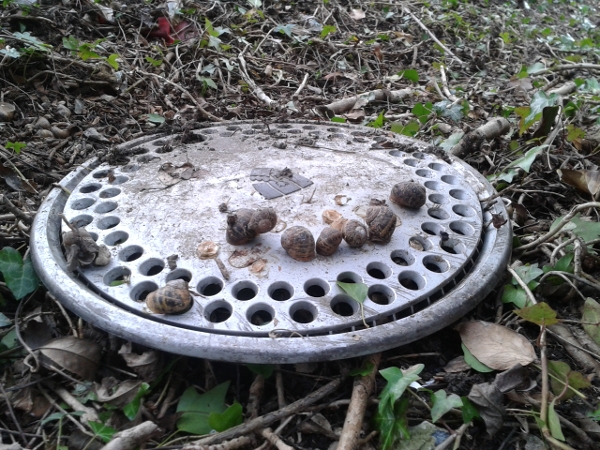It’s February. It’s still raining. For most of November and early December we sat under a grey ceiling of high pressure and the skies stayed sane – little rain fell; there was hardly any wind. It meant for a beautiful, extended autumn, the trees holding onto their sprays of fire for what seemed like weeks on end. We watched the slow blaze of the limes and silver birches, the bright gold of field maples and aspens; as late as the 10th December, we stood beneath a mesh of hazel poles, still in leaf, and inhaled the late copper flush in the oak woods. Then came several days of storms, storms which ripped the remaining leaves from the trees, dashing them against the windows, piling them in ragged roadside barriers. It was the start of things.
Since then, we’ve been deluged – there’s no other word for it. Depression after depression has swirled in from the Atlantic, bringing lowering, cinerous skies, gravid with water. Out in the world you can feel the weight of all that has fallen – it pulls at the horizon: garden grass sucks at feet, water brimming around the soles of shoes, as if depressing a sponge; field margins tip roadwards or disappear altogether; woodlands hover and double – ankle deep in gathered rainwater they reflect themselves, the eye deceived by the thresh of new limbs; tracks and roads seem in a constant state of movement with new streams and waterways coursing in pulsing v-shapes; answering the pull of gravity these ephemeral brooks seek out natural dells and declivities, forming murky pools.
All this has meant a new kind of water-awareness, a water-consciousness, flickering in the periphery like light glare off a standing shoal. The river that wends through the woods, generally unnoticed, has a sudden new voice; from the watershed – up on the chalk and clayland heights – it brings a new secret cargo – a cargo of storm damage on gritty, scented water: twig-meal, fern outriders, unexploded plastic. On concurrent nights after a walk along the groaning banks of the lower reaches, the boy and I dreamed of charting the river’s course, seeking out the occulted mainspring and following it underground into the chalk chambers of its origins. We await a clear day…


